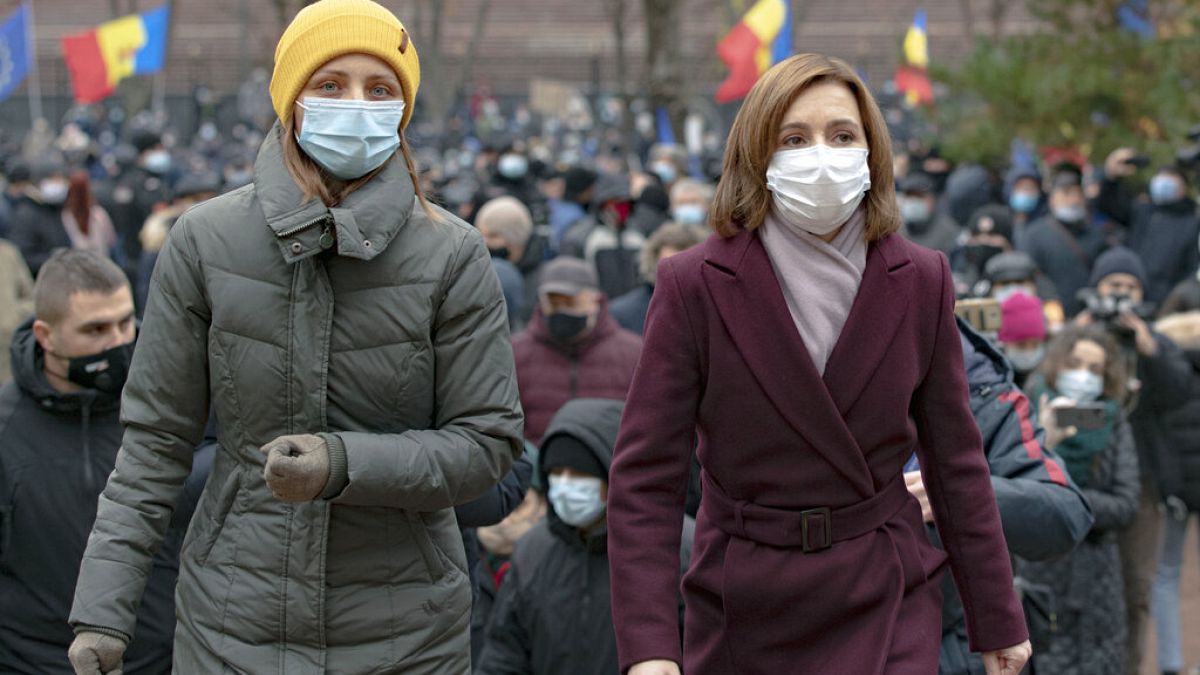The new body will be tasked with investigating major cases financial and banking cases, as well as the alleged failures of the state's own anti-corruption institutions.
President of Moldova Maia Sandu has launched an extra-governmental corruption monitoring body after declaring the state's own institutions "too slow".
The Moldovan premier signed off on the new "Anticorruption Independent Consultative Committee" on Monday and the taskforce was set to begin work on Tuesday.
The six-member panel, co-chaired by United States diplomat James Wasserstrom, includes economists, jurists and journalists and is partially funded by the EU and US.
The Committee will function as an NGO and will investigate major cases in the country's financial and banking sectors, in partnership with law enforcement.
It comes after Sandu warned in March that Moldova's COVID-19 response had been hampered by corruption in a year that also saw the country narrowly avoid financial collapse.
In a statement on Monday after signing the decree, Sandu said: "Unfortunately, the state institutions that prevent and fight corruption are moving very slowly, much slower than the corrupt groups stealing (from) this country.
"The good thing is that the citizens of the Republic of Moldova are not alone in the face of this major challenge. Thieves from the Republic of Moldova managed to make themselves known internationally. The frauds they committed have come to be known by the whole world.
"Our development partners understand how serious the problem of corruption in the Republic of Moldova is and are ready to help us."
Moldova ranked 115th out of the 180 countries in Transparency International’s 2020 Corruption Perception Index.
The country secured a $235 million (€193 million) emergency loan from the International Monetary Fund last April. Earlier this month, the EU's executive arm also promised the country a €600 million recovery package conditional on judicial and anti-corruption reforms.
Sandu, who was elected last November, dissolved the Moldovan parliament in late April and called a snap election scheduled for July 11 in a bid to reset the balance of power in the former Soviet republic.
Part of the new Committee's role will be to examine historic management issues within the state's own anti-corruption institutions.
Speaking at a press conference on Monday, James Wasserstrom -- a former head of oversight at the United Nations and current anti-corruption officer at the US embassy in Kabul, Afghanistan -- told reporters: "We want to learn why the Moldovan corruption-combating institutions are not efficient in fulfilling their duty."
Moldova is the third country after Afghanistan and Ukraine to set up a parastatal body specifically to deal with alleged internal corruption.
The Committee's co-chair is Alina Radu, a Moldovan investigative journalist who has written extensively about nepotism and criminal activity in the country.
Its other members include IMF economist Tamara Razin, Drago Kos, chair of the Organisation for Economic Co-operation and Development's working group on bribery in international business, Council of Europe anti-corruption expert Laura Stefan and human rights lawyer Nadejda Hriptievschi.
